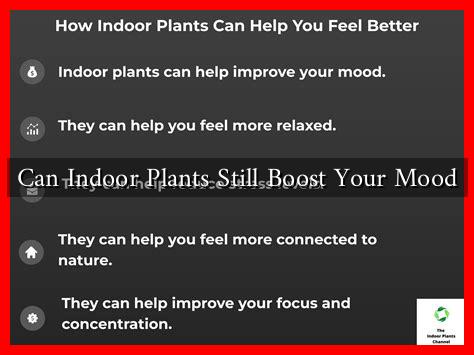-
Table of Contents
Can Indoor Plants Still Boost Your Mood?
In recent years, the trend of incorporating indoor plants into living and working spaces has gained significant momentum. Beyond their aesthetic appeal, many people believe that indoor plants can enhance mental well-being. But can indoor plants truly boost your mood? This article delves into the science behind this phenomenon, exploring the psychological and physiological benefits of having greenery indoors.
The Science Behind Nature and Mood
Numerous studies have shown that exposure to nature can have a positive impact on mental health. A study published in the journal Environmental Science & Policy found that individuals who spent time in natural environments reported lower levels of stress and anxiety. This connection between nature and mood is often referred to as the “biophilia hypothesis,” which suggests that humans have an innate affinity for nature.
Benefits of Indoor Plants
Indoor plants offer a variety of benefits that can contribute to improved mood and overall well-being. Here are some key advantages:
- Air Quality Improvement: Plants can purify the air by absorbing toxins and releasing oxygen. A study by NASA found that certain houseplants can remove up to 87% of indoor air pollutants in 24 hours.
- Stress Reduction: Interacting with plants has been shown to lower cortisol levels, the hormone associated with stress. A study published in the Journal of Physiological Anthropology found that participants who engaged in gardening activities reported lower stress levels.
- Enhanced Focus and Productivity: A study conducted by the University of Exeter found that employees in workplaces with plants were 15% more productive than those in environments without greenery.
- Emotional Connection: Caring for plants can foster a sense of responsibility and purpose, which can be particularly beneficial for individuals experiencing feelings of loneliness or depression.
Case Studies and Real-Life Examples
Several case studies highlight the positive effects of indoor plants on mood and mental health:
- Hospital Settings: Research conducted in healthcare facilities has shown that patients with views of plants or nature recover faster and report lower levels of pain and anxiety.
- Office Environments: A tech company in San Francisco implemented a biophilic design by adding indoor plants to their workspace. Employee surveys indicated a significant increase in job satisfaction and a decrease in reported stress levels.
- Home Environments: A survey by the National Gardening Association found that 78% of respondents felt happier and more relaxed in spaces with indoor plants.
Choosing the Right Indoor Plants
Not all plants are created equal when it comes to mood enhancement. Here are some popular indoor plants known for their air-purifying qualities and aesthetic appeal:
- Snake Plant: Known for its resilience and air-purifying abilities, the snake plant is perfect for beginners.
- Pothos: This trailing vine is easy to care for and can thrive in low light, making it ideal for various indoor settings.
- Peace Lily: With its beautiful white blooms, the peace lily not only enhances decor but also helps improve air quality.
- Spider Plant: This hardy plant is known for its ability to remove pollutants and is safe for pets.
Conclusion
In conclusion, the evidence supporting the mood-boosting benefits of indoor plants is compelling. From improving air quality to reducing stress and enhancing productivity, the presence of greenery in our living and working spaces can significantly impact our mental well-being. As we continue to navigate the challenges of modern life, incorporating indoor plants may be a simple yet effective strategy to enhance our mood and overall quality of life. So, whether you’re a seasoned plant parent or a novice, consider adding a few indoor plants to your space and experience the benefits for yourself.


